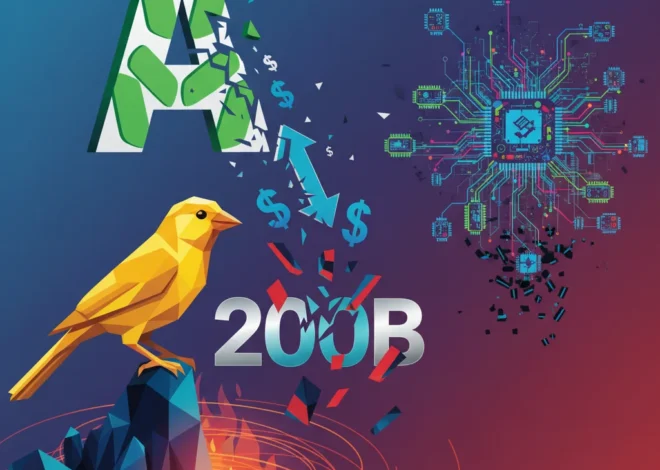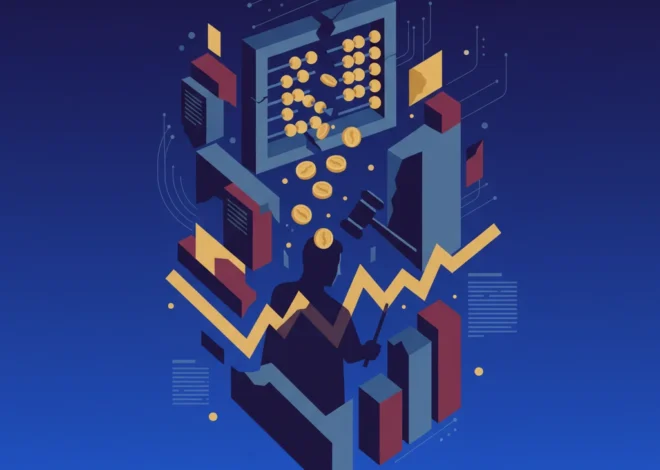
A New Era for Wall Street: Analyzing the Economic Ripple Effects of NYC’s Political Shake-Up
In a stunning political development that has sent reverberations from City Hall to the trading floors of Wall Street, Zohran Mamdani, a progressive firebrand, has been elected the next mayor of New York City. The victory, part of a broader Democratic sweep in key races, marks a historic moment as Mamdani is set to become the first Muslim to lead the nation’s largest city. According to breaking news reports, this outcome represents a significant shock to the established political order and is being widely interpreted as a blow to the lingering influence of the Trump era (source).
For investors, finance professionals, and business leaders, however, the celebration and political analysis are secondary to a more pressing question: What does a Mamdani administration mean for the financial capital of the world? His platform, built on promises of radical economic reform, wealth redistribution, and stringent corporate oversight, presents both unprecedented challenges and unique opportunities for the city’s economic engine. This article delves into the potential impacts of this political earthquake on finance, investing, and the future of New York’s economy.
The Political Shift and Its Economic Underpinnings
Mamdani’s victory was not just a political upset; it was a mandate for change, fueled by a coalition of voters concerned with rising inequality, housing costs, and the perceived excesses of the financial industry. His campaign rhetoric often targeted the very heart of the city’s power structure: its sprawling banking and finance sector. Understanding his core policy proposals is crucial for anyone with capital at stake in the New York City ecosystem.
These proposals signal a fundamental shift in the city’s approach to its relationship with the private sector, particularly the pillars of its world-renowned financial industry. The focus is moving from incentivizing corporate presence to demanding greater social and fiscal contributions. Below is a breakdown of the key planks of the incoming administration’s economic platform and their potential market implications.
Beyond the Handshake: Decoding the Economic Tremors of the Trump-South Korea Summit
Key Policy Proposals of the Mamdani Administration:
| Policy Proposal | Potential Impact on the Financial Sector |
|---|---|
| Financial Transaction Tax (FTT) | A small tax on stock, bond, and derivative trades could generate billions for the city but may impact high-frequency trading firms and reduce trading volume on NYSE and Nasdaq. This could drive some automated trading operations to other jurisdictions. |
| “Green New Deal” for NYC | Massive investment in green infrastructure, funded by municipal “green bonds.” This creates significant opportunities for ESG (Environmental, Social, and Governance) investing but could also mean higher corporate taxes to fund the initiatives. |
| Municipal Digital Currency & Blockchain Integration | Proposal to explore a city-backed digital currency for social services and to use blockchain for transparent public contracts. This could be a boon for the local fintech sector but raises questions about privacy, scalability, and integration with the traditional banking system. |
| Stricter Real Estate & Banking Regulations | Increased regulations on landlords, a vacancy tax on commercial properties, and the creation of a public bank could put pressure on real estate investment trusts (REITs) and challenge the dominance of major commercial banks. |
| Worker Empowerment Initiatives | Strong support for unionization and gig economy worker protections could increase operating costs for tech companies and service industries, potentially affecting their stock market valuations. |
Wall Street on Watch: Navigating Volatility and Opportunity
The immediate reaction from the stock market is likely to be one of caution and uncertainty. The specter of new taxes and regulations on the banking and trading sectors could lead to short-term volatility. Investors may begin to price in the potential for reduced profitability for financial firms headquartered in the city. The proposed Financial Transaction Tax, in particular, has long been a point of major concern for the industry, with opponents arguing it could damage the city’s competitiveness. A 2021 report highlighted that even a modest FTT could have complex and far-reaching effects on market liquidity and investment behavior (source).
However, a purely bearish outlook would be shortsighted. A Mamdani administration also unlocks new avenues for growth and investing. The commitment to a “Green New Deal” for NYC, for instance, will necessitate the issuance of billions of dollars in green bonds, creating a massive new market for investors focused on sustainable finance. This aligns perfectly with the global surge in ESG investing, a market projected to reach $53 trillion by 2025. Firms that specialize in green infrastructure, renewable energy, and sustainable technology may find the city a newly welcoming and lucrative environment.
The Fintech and Blockchain Wildcard
Perhaps the most forward-looking, and disruptive, element of the new administration’s platform is its embrace of financial technology. The proposal to explore a municipal digital currency is a direct challenge to traditional banking and payment systems. While still in its infancy, such a program could use a city-controlled digital wallet to distribute aid, process payments for city services, and provide banking services to unbanked populations. This could be a massive sandbox for fintech innovation, creating opportunities for companies specializing in digital identity, payment processing, and cybersecurity.
Furthermore, the pledge to use blockchain for public procurement and record-keeping is a direct nod to the technology’s potential to enhance transparency and reduce corruption. If implemented, this would be one of the largest real-world tests of blockchain governance globally. It could position New York City as a leader in applied blockchain technology, attracting talent and startups in the space. However, it also brings challenges. The economics of implementing and securing such a system at scale are complex, and it will face significant hurdles from both a technical and regulatory standpoint.
National Economic Implications
It is a mistake to view this election in a vacuum. New York City is often a bellwether for national trends in policy and economics. Mamdani’s victory, as part of a wider Democratic success, signals a growing appetite within the party’s base for more aggressive economic interventionism. Policies trialed in NYC, such as a financial transaction tax or a public bank, could easily become cornerstones of the national Democratic platform in the coming years.
For business leaders and investors across the country, this is a critical development to monitor. The success or failure of these policies in the complex New York economy will provide a powerful case study. If Mamdani can raise revenue and fund social programs without crippling the city’s financial sector, it will embolden progressive politicians nationwide. Conversely, if these policies lead to capital flight and economic stagnation, it will serve as a cautionary tale. The future of American economics is, in many ways, about to be tested on the streets of New York.
Conclusion: A New Chapter for American Finance
The election of Zohran Mamdani is more than a political headline; it is the start of a new, uncertain, and potentially transformative chapter for the relationship between government and capital in America’s most important city. The coming years will be defined by a delicate dance between a progressive administration determined to reshape the city’s economy and a financial industry accustomed to a more laissez-faire environment.
For the astute investor and business leader, this period of disruption should not be viewed with fear, but with a sharp, analytical eye. The landscape of finance, banking, and technology in New York City is about to change dramatically. New regulations will create new costs, but new initiatives in green energy, fintech, and blockchain will create new markets. The key to navigating this new era will be adaptability, foresight, and the ability to distinguish political noise from fundamental economic shifts. The trading on the stock market may grow more complex, but the opportunities for those who understand the new rules of the game have never been greater.


